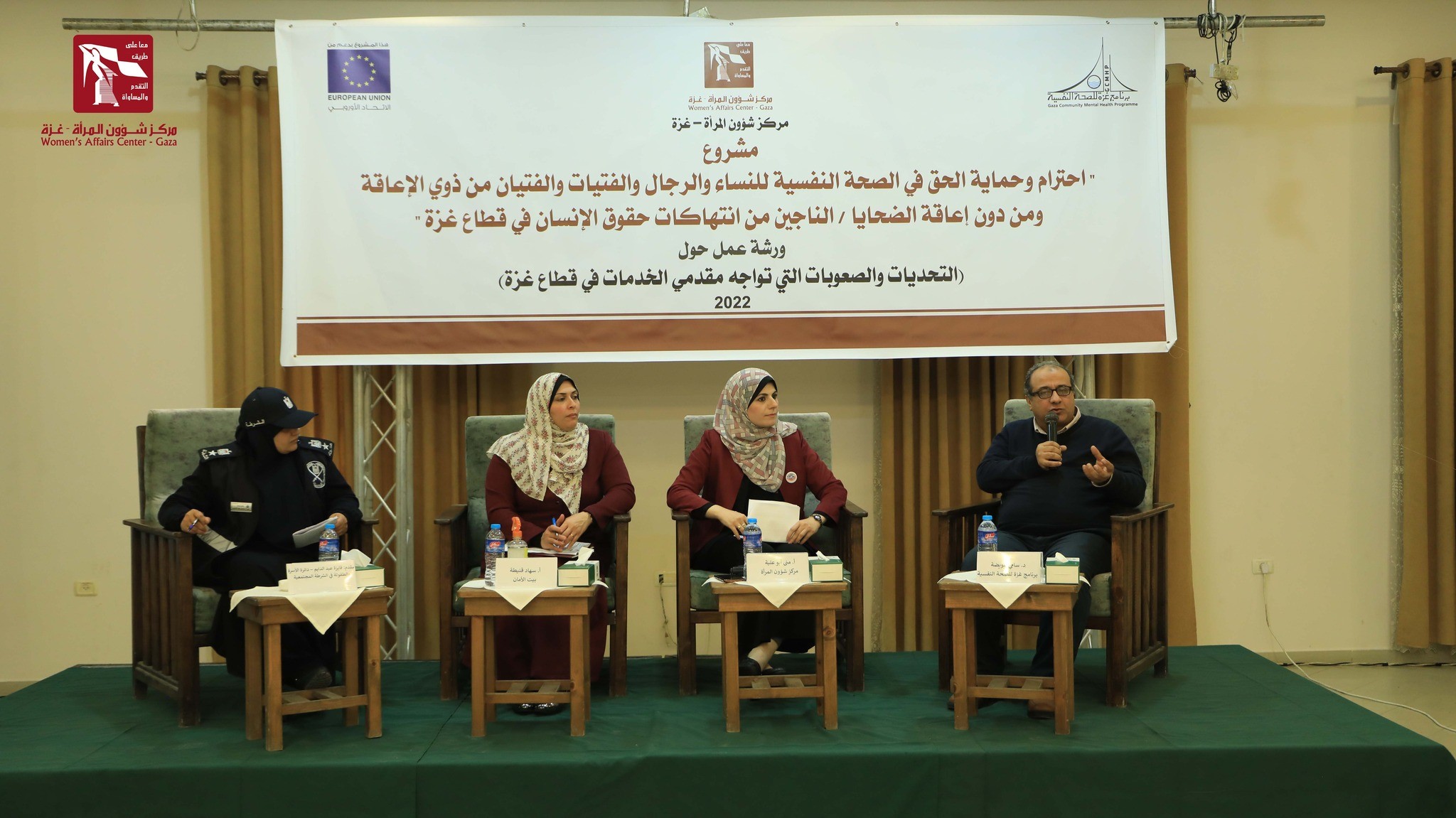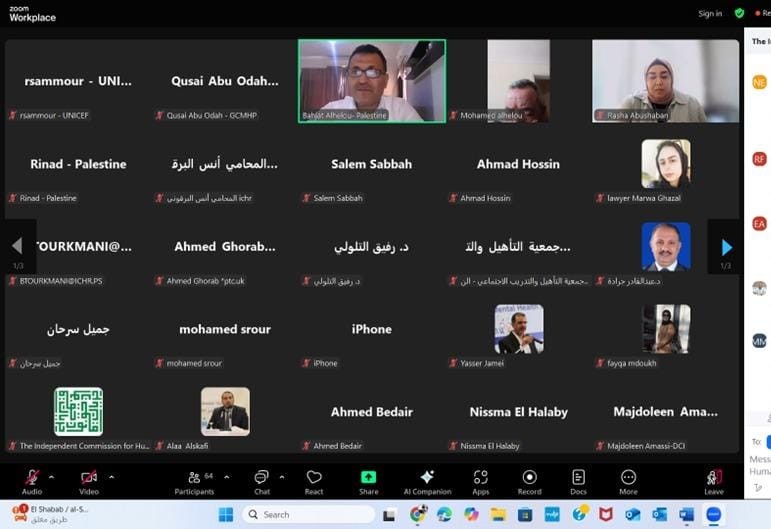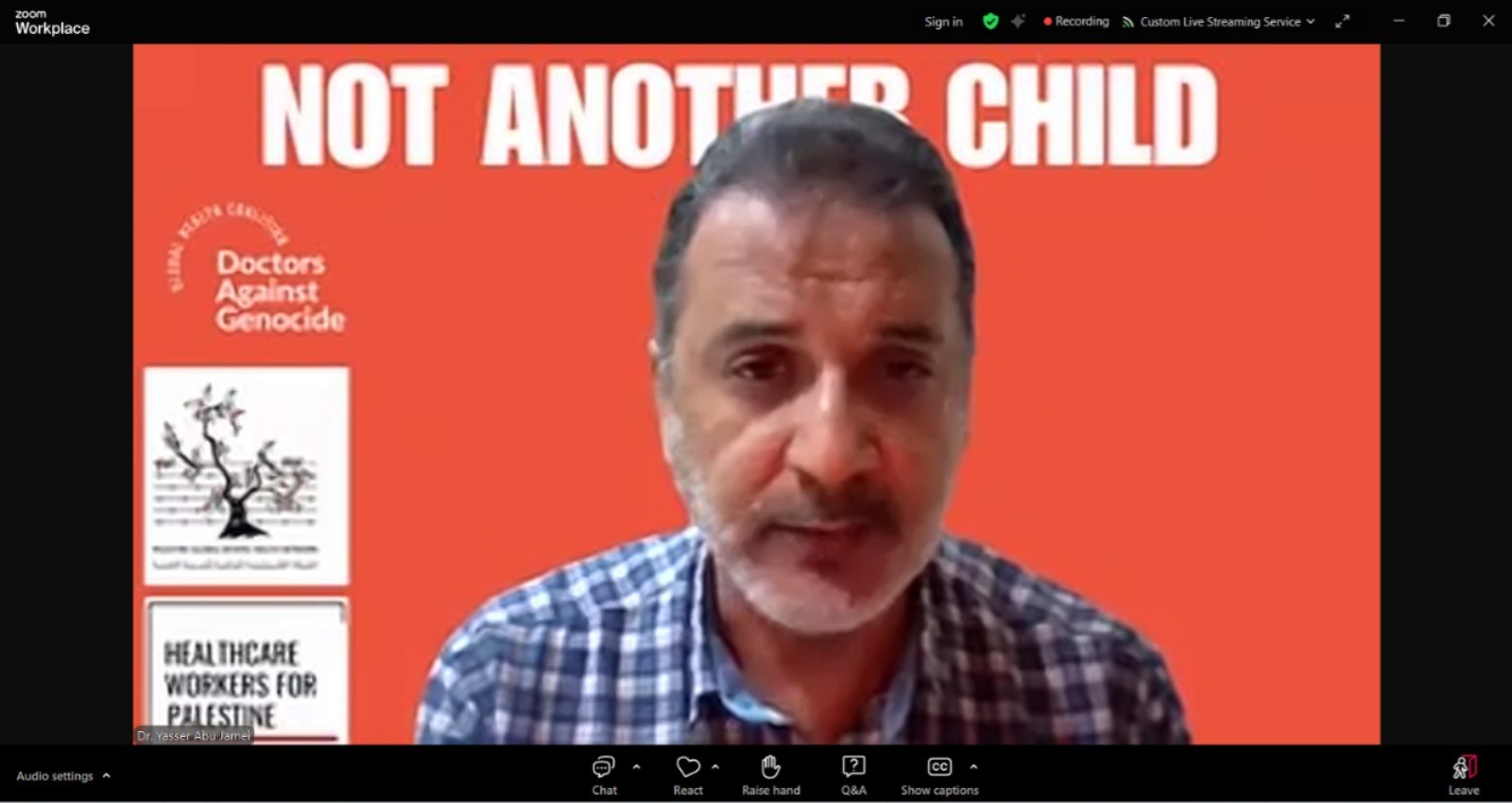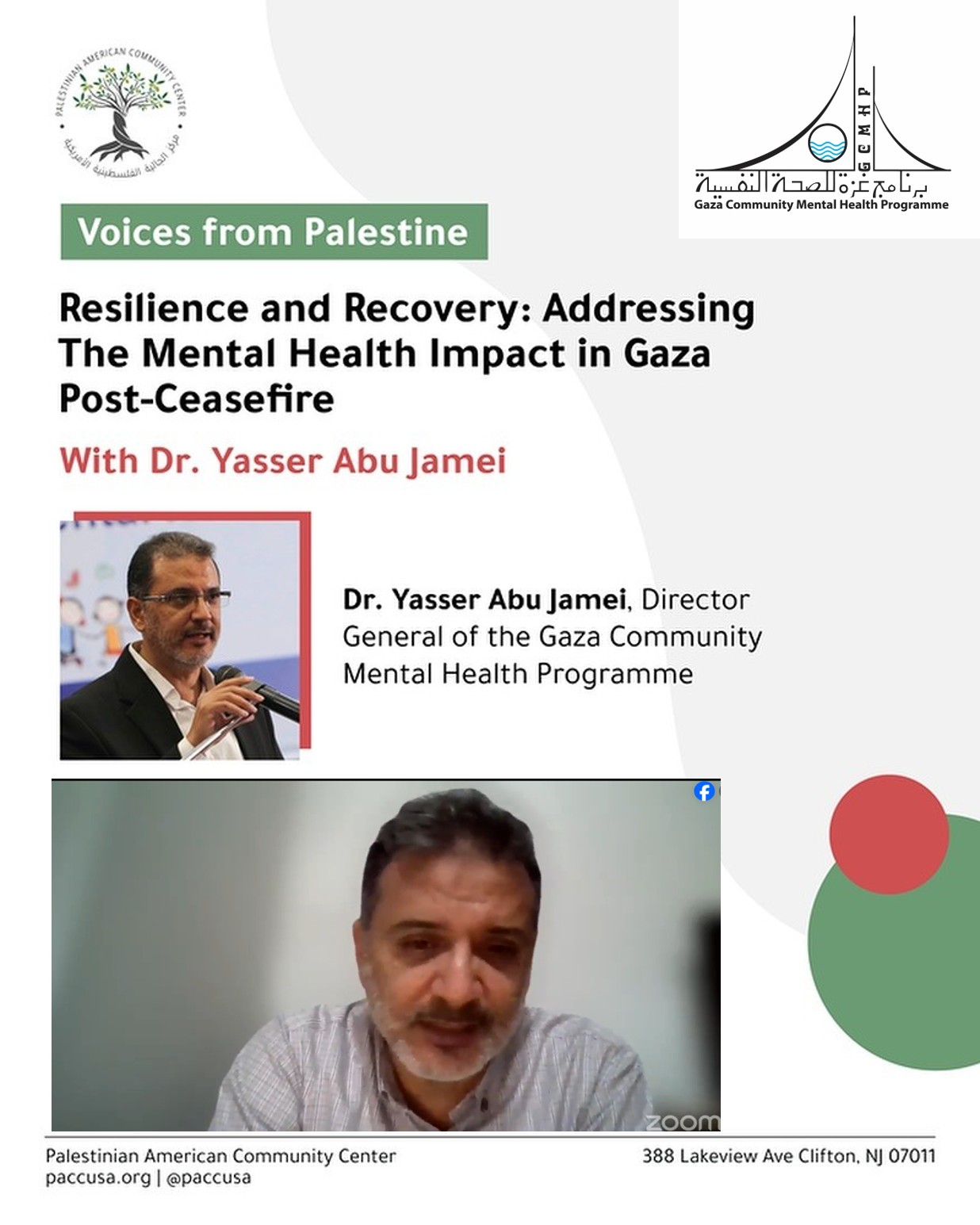
“GCMHP and WAC Jointly Organize Workshop on ‘Challenges in Service Provision To GBV Victims’”
Promoting community mental health services through a human rights-based approach, the Women's Affairs Center, and Gaza Community Mental Health Programme jointly organized a workshop on "Challenges and Difficulties Facing Service Providers in the Gaza Strip".
The workshop – conducted among activities supported by Project’s ‘Respect And Protect The Right To Mental Health For Women, Men, Girls And Boys With And Without Disability, Victims / Survivors Of Human Rights Violations In The Gaza Strip’ – was attended by "101" representatives of governmental and non-governmental organizations.
Among the main objectives of the workshop was to spotlight the challenges and difficulties facing service providers in the Gaza Strip at the formal and informal levels; to guarantee provision of psychosocial services based on human rights so as to preserve the human dignity of the beneficiaries.
This workshop included presentations on the work mechanism of providing mental health and psychosocial services. The first presentation was made by the Women's Affairs Center, on "case management services and psychosocial support to women and girls, especially GBV survivors”. The presentation also included explanation of the multiple stages of providing services, starting from case identification need-based referral.
Then Dr Sami Oweida – from Gaza Community Mental Health Programme – delivered a presentation about to "How survivors of gender-based violence are intervened with, and the mental health services provided to them at GCMHP’s centers. His presentation also focused on primary intervention which includes awareness promotion and advocacy efforts to limit violence against women and girls.
Speaking about the service of providing safe shelters for battered women and girls, Ms Suhad Quneita , Director of “DarAl Aman” Abused Women Shelter, explained the services her organization provides and the procedures followed to provide access for cases to the safe house as well as the mechanisms of working with them so as to provide them with protection and preserve their dignity.
As for how cases of gender-based
violence are dealt with, Lieutenant Colonel Fayza Abdel-Dayem, head of Family
and Childhood Police Department, emphasized the role played by her Department
in the community to provide a safe environment for women and children support
GBV victims.
At the end of the workshop the panelists and the participants drafted recommendations to enhance the intervention and services provided for women and girls and other vulnerable social groups, and address any gaps through cooperation and more organized work with all the concerned sides.




Read Comments
Steven Rich
March 10, 2019Omnis iste natus error sit voluptatem accusantium nam libero tempore, cum soluta nobis est eligendi optiocumque nihil impedit quo minus id quod maxime.
Van Wimbilton
March 10, 2019Natus error sit voluptatem accusantium nam libero tempore, cum soluta nobis eligendi optio cumque nihil impedit quo minus id quod maxime.